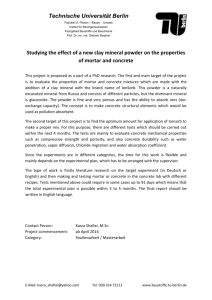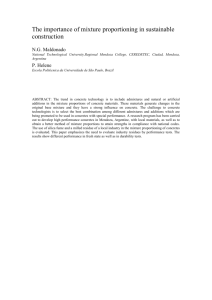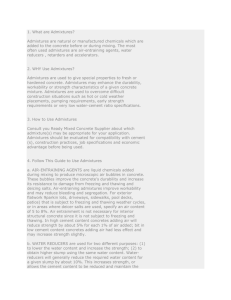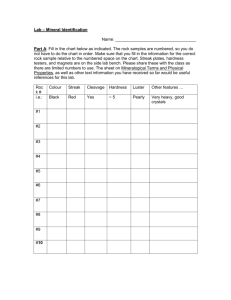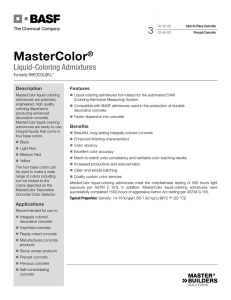By Kamran M. Nemati , Paolo Gardoni , and Takafumi Noguchi
advertisement
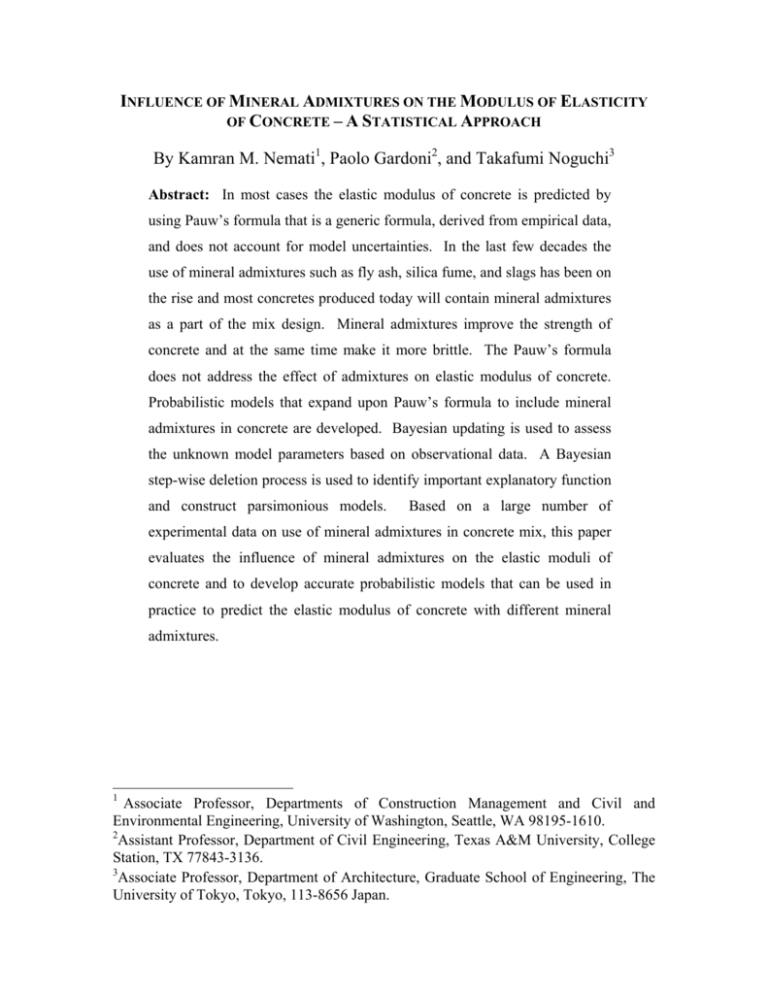
INFLUENCE OF MINERAL ADMIXTURES ON THE MODULUS OF ELASTICITY OF CONCRETE – A STATISTICAL APPROACH By Kamran M. Nemati1, Paolo Gardoni2, and Takafumi Noguchi3 Abstract: In most cases the elastic modulus of concrete is predicted by using Pauw’s formula that is a generic formula, derived from empirical data, and does not account for model uncertainties. In the last few decades the use of mineral admixtures such as fly ash, silica fume, and slags has been on the rise and most concretes produced today will contain mineral admixtures as a part of the mix design. Mineral admixtures improve the strength of concrete and at the same time make it more brittle. The Pauw’s formula does not address the effect of admixtures on elastic modulus of concrete. Probabilistic models that expand upon Pauw’s formula to include mineral admixtures in concrete are developed. Bayesian updating is used to assess the unknown model parameters based on observational data. A Bayesian step-wise deletion process is used to identify important explanatory function and construct parsimonious models. Based on a large number of experimental data on use of mineral admixtures in concrete mix, this paper evaluates the influence of mineral admixtures on the elastic moduli of concrete and to develop accurate probabilistic models that can be used in practice to predict the elastic modulus of concrete with different mineral admixtures. 1 Associate Professor, Departments of Construction Management and Civil and Environmental Engineering, University of Washington, Seattle, WA 98195-1610. 2 Assistant Professor, Department of Civil Engineering, Texas A&M University, College Station, TX 77843-3136. 3 Associate Professor, Department of Architecture, Graduate School of Engineering, The University of Tokyo, Tokyo, 113-8656 Japan.
